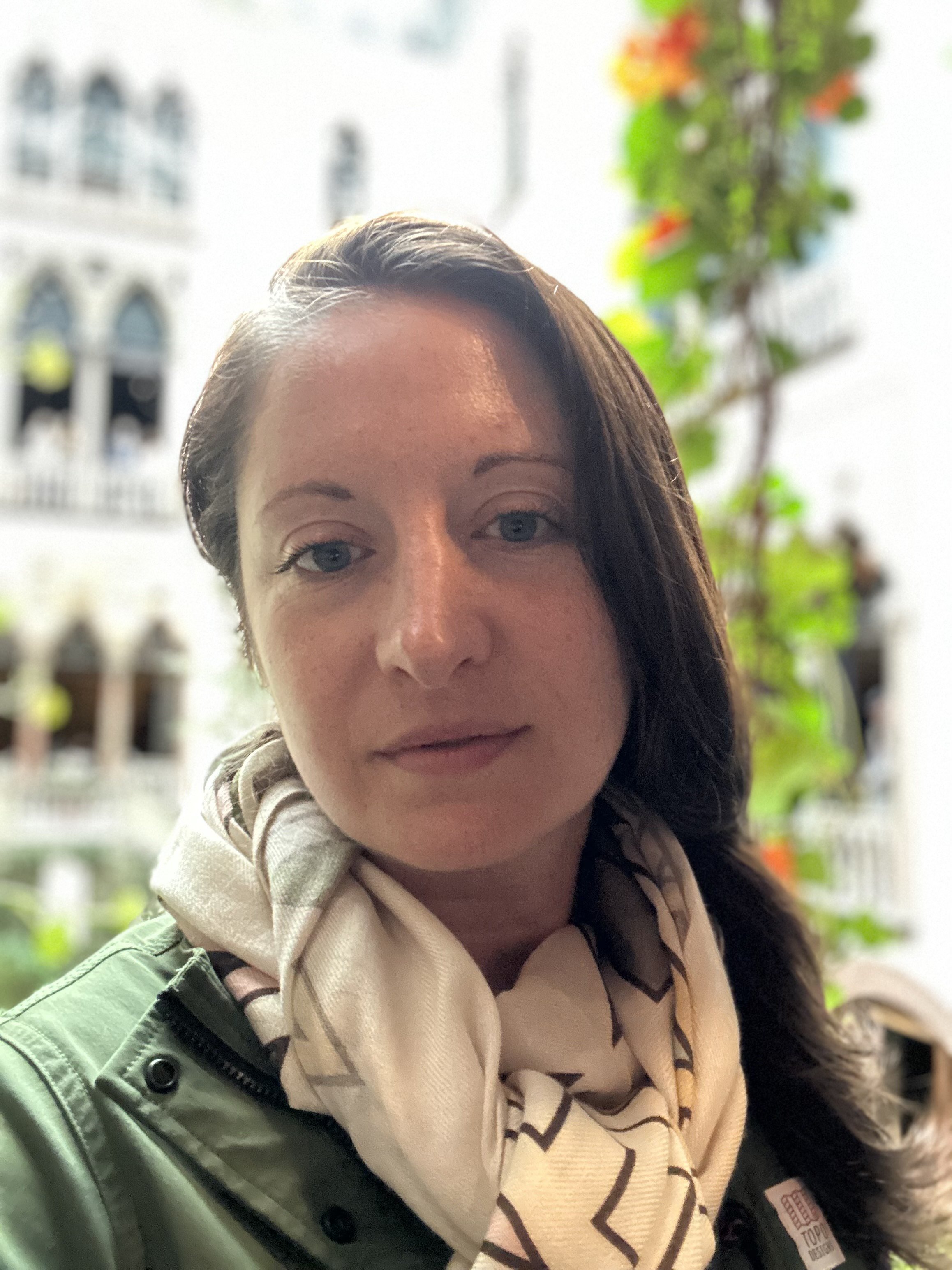
For decades, Volunteer NH has played a vital role in fostering civic engagement and building community across New Hampshire through volunteerism. Serving as the state’s National Service Commission, the organization works in partnership with the Governor’s office to manage federal funds, provide support for volunteer programs across the Granite State, and connect individuals with meaningful service opportunities.
Volunteer NH’s internal journey toward justice, equity, diversity, and inclusion (JEDI) stands out as a powerful testament to its commitment to ensuring that all Granite Staters, regardless of background, have space within the service sector. The New Hampshire Center for Justice & Equity (NHCJE) spoke with Volunteer NH’s staff and Board Members to discover the unique ways that make the organization’s pursuit of these values more authentic.
Prioritizing Justice at the Core of Change
“Like many non-profits in the Granite State, our board was composed primarily of white individuals whose careers or retirement allowed them the capacity to serve. At that time, we looked inward and acknowledged that while we were committed to addressing the fact that our board was not reflective of the diversity of New Hampshire and the communities we serve, we were not ready to reflect them genuinely.”
— Ally Snell, co-chair of Volunteer NH’s Board of Directors
Aligned with America’s Service Commissions (ASC), the membership organization for all the National Service Commissions, Volunteer NH uses the acronym JEDI — Justice, Equity, Diversity, and Inclusion — rather than the more widely used DEIJ, to emphasize the importance of restorative justice in their work. While diversity, equity, and inclusion are critical components of creating more equitable organizations and communities, Volunteer NH believes justice is central to addressing the root causes of inequality, making it a foundational principle in their mission.
Ally Snell, co-chair of Volunteer NH’s Board of Directors, reflects on the organization’s ongoing transformation and efforts to integrate JEDI values into its structure and work. While Volunteer NH has long promoted service as a cornerstone of community involvement, the internal shift towards JEDI began after the national reckoning with racial justice in 2020. Volunteer NH realized it had work to do to ensure its board, grants, and programs were more inclusive, but the path forward required careful, intentional steps.
“Like many non-profits in the Granite State, our board was composed primarily of white individuals whose careers or retirement allowed them the capacity to serve,” Snell said. “At that time, we looked inward and acknowledged that while we were committed to addressing the fact that our board was not reflective of the diversity of New Hampshire and the communities we serve, we were not ready to reflect them genuinely.”
Snell stresses that addressing diversity is not simply about inviting people from different backgrounds to join the board and calling it progress. “We need to build a space that is going to be welcoming and inclusive of different perspectives and identities before we start inviting people in,” she said.
Building an Inviting, Inclusive Foundation
Before expanding its board and programs to reflect the growing diversity of New Hampshire, both the board and staff of Volunteer NH took a step back to develop a shared understanding of JEDI principles. “First, we worked on getting the whole board to a shared vocabulary of this work and understanding what we mean when we talk about these things” explained Snell. “That meant skill-sharing and training our staff and board members on key concepts, attending workshops, and other opportunities, like a training series from the New Hampshire Business for Social Responsibility.”
“Who are we advertising to? Who’s involved in the selection process? What biases come up? Which communities and experiences are being ignored? These questions apply not just to programming, but to who’s making decisions, and who’s part of the organization.”
— Ally Snell, co-chair of Volunteer NH’s Board of Directors
From those learnings, Volunteer NH’s leadership crafted a JEDI strategic plan, approved by the board in late 2020, which would guide the organization’s next steps. Still, Snell notes, a plan is only as good as the people implementing it. “Putting this plan into action is about recognizing our gaps – who we’re not reaching, what we’re not doing, and focusing on where we can have the most impact,” said Snell.
As an organization that offers unique grant opportunities, and excels at finding creative ways to get federal funding into the hands of as many organizations as possible, especially smaller ones, reflecting on who has a seat at the table is crucial to advancing diversity. Snell highlights that constant interrogation is the path forward. “Who are we advertising to? Who’s involved in the selection process? What biases come up? Which communities and experiences are being ignored?” repeated Snell. “These questions apply not just to programming, but to who’s making decisions, and who’s part of the organization.”
Slow and Steady Progress Beats Performative Engagement
“When organizations want more BIPOC voices, but they’re not doing anything in their marketing strategies to showcase that, people see it”
— Victoria Carrington Chávez, Creative Director and Community Engagement Specialist
Volunteer NH’s leadership recognized that building an inclusive organization required more than checking off boxes. Instead of rushing to diversify its board, the organization focused on building relationships with underrepresented communities. “We didn’t want to risk tokenizing the experiences of underrepresented folks,” Snell said. “Instead, we’re focusing on relationship-building. Through existing trust and connections with board members, we hired six community consultants from different backgrounds and experiences to dig into all aspects of our operations.”
MaeAnna Edwards, currently the Associate Director of College Access at Minds Matter Boston, is one of the Community Consultants who worked alongside Volunteer NH’s JEDI committee to provide feedback on how to expand grant opportunities to reach more diverse spaces—not just racially diverse, but geographically as well. “There are so many communities, especially in the North Country, doing incredible work that often goes unrecognized compared to those in the southern part of the state. We were passionate about addressing that gap and making sure these opportunities and events became more accessible across all regions,” Edwards said.
Victoria Carrington Chávez, Creative Director and Community Engagement Specialist, joined the team of consultants to advise Volunteer NH on communications and messaging. “When organizations want more BIPOC voices, but they’re not doing anything in their marketing strategies to showcase that, people see it,” said Carrington Chávez. “And diversity isn’t just people of color. We have a queer community here, we have neurodiverse people and people with disabilities. So we must include narratives of volunteerism across all the identities that may be represented in the state of New Hampshire,” she added.
The impact of the consultants’ participation is significant. “I’m not sure that meaningful change can happen in an organization in just one year, but I was genuinely heartened to see people at every level embracing it,” recalled Edwards. “Was everything perfect? No, but Volunteer NH is at the forefront of this work, bringing in voices from the community and paying them for their time and expertise. That’s a significant step forward, and it’s something many nonprofits in the state aren’t doing yet,” she said.
Carrington Chávez similarly values the invitation to be compensated for her expertise. “As an entrepreneur, stepping away from client work means there has to be some balance, and being compensated allowed me to take that time without sacrificing my business. It showed reciprocity and a real commitment to making participation more accessible and equitable,” she said.
For other organizations in New Hampshire seeking to embark on a similar journey, Snell alerts that inviting individuals from marginalized backgrounds to contribute is a significant ask. “This can involve reliving past traumas and navigating heavy emotional labor. Therefore, it’s crucial to be transparent and to compensate them fairly for their work and time. Our organization intentionally allocated funds to pay consultants above the market rate, acknowledging the value of their lived experiences and the knowledge they are contributing,” she explained.
Expanding Access to Volunteerism
“We’ve seen a proliferation in virtual volunteerism in the last couple of years … That can include reviewing grants, for example, or providing communications services. And we might not realize it, but there are a lot of activities we do that embed the spirit of volunteerism”
— Ally Snell, co-chair of Volunteer NH’s Board of Directors
Volunteer NH’s efforts to promote equity do not end with the boardroom. The organization has also prioritized expanding access to volunteerism, recognizing that barriers such as free time, economic disadvantage, and lack of childcare can limit participation. Through platforms like Get Connected, Volunteer NH has widened the pool of opportunities, making it easier for Granite Staters of all backgrounds to find ways to serve their communities.
“We’ve seen a proliferation in virtual volunteerism in the last couple of years,” Snell noted. “That can include reviewing grants, for example, or providing communications services. And we might not realize it, but there are a lot of activities we do that embed the spirit of volunteerism,” she says.
Some examples of giving back to the community mentioned by Snell include leading a scout troop, supporting PTA, or school and after-school programming, helping your neighbors, cleaning up public areas when going for a walk, serving on a board, and even being a mentor to a colleague at work. For Snell, being of service to others is interchangeable with civic engagement. “We have to reframe the idea of service as a one-way exchange and look at it as being part of who we are as a people and part of building and impacting a community, wherever that may be.”
JEDI is a Journey, Not a Destination
As Volunteer NH continues its journey toward greater justice, equity, diversity, and inclusion, Snell acknowledges that there is still work to be done. “We’re not where we want to be yet,” she said. “But we understand that this is a multi-year journey, and we’re committed to approaching it with humility, authenticity, and a willingness to learn.”
Volunteer NH’s commitment to JEDI principles represents more than a response to the times. By focusing on internal change and relationship-building, the organization is setting a course for other New Hampshire organizations to grow. Through this journey, Volunteer NH demonstrates that true equity isn’t about short-term gains but about fostering genuine, sustainable inclusivity – one that reflects and serves all.
You can find opportunities to volunteer here:

About Ally Snell
Ally Snell (she/her) is a perpetually curious intercultural facilitator, creative strategist, and community connector who has worked in government, education, and non-profit sectors across the US and abroad. A proud partner and human/cat/plant mom, you can find her dabbling in endurance sports somewhere on the trails in NH in her free time.





